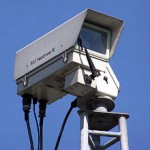We’ve had the Middle Eastern civil uprisings allegedly fuelled by Twitter, and now we’ve had the Blackberry-powered riots here in the UK. Together, these two situations show the power of social networking to amplify and accelerate a situation, whether for good or for evil – recent embodiments of Howard Rheingold‘s Smart Mobs. Already, though, some of the debate has shifted from the mindlessness of the actions themselves to the culpability of technology in the situation. BlackBerry is under pressure to release information which would be useful in apprehending the criminals, and it’s looking likely the company will be assisting the police with their enquiries thanks to the RIPA Act.
This turn of events raises questions about civil liberties and digital rights. By letting the police hack the (allegedly) private BlackBerry Messaging, are we giving away virtual values, in the same way that we would be if we allowed law enforcement officers to search our houses whenever they wanted, just in case we’re criminals? Indeed, the latter was a key factor in stirring up the American Revolution in the 18th Century, when the British invoked rights to search properties without a warrant.
But just because that classic physical privacy situation seems to resemble the new digital privacy issues at stake here doesn’t mean they can really be equated. Few civilised people would be upset if hacking the BBM system meant the instigators of this attrocious criminal activity ended up being brought to justice. Many of us will be quite happy to relinquish a bit of digital privacy so our local businesses don’t end up looted and set on fire by packs of feral adolescent imbeciles.
Indeed, this is yet another example of the Era of Radical Transparency in which we now live, and it’s part of the same continuum inhabited by Julian Assange and his WikiLeaks, or the numerous cases of teachers being fired for pictures or comments they put up on Facebook. As Christian Heilmann’s brilliant traffic cam hack shows, it’s very easy to spy on each other these days. We better get used to being watched.
I’m sure the criminals seen on the front page of The Sun newspaper will think their 15 minutes of fame have arrived, to begin with. But then the doorbell will ring and the police will come to take them down to the station, and they’ll also start rounding up the idiots who thought their BBM conversations were private. Then they will begin to realise that you may think you’re free and your life is not on view, but this is just a delusion. Someone’s always watching you, and someone will always be reporting on what you do, so you better be careful how you behave.
Related Posts








